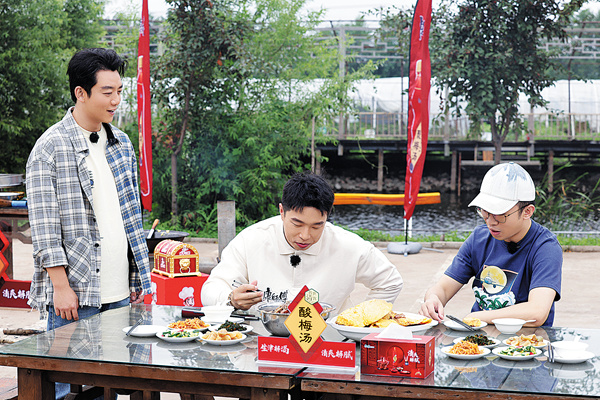

"We also aim to show the audience aspects of the city that are less well known. We used to wear clothes of a single color such as dark blue and black, and it was people in Harbin in printing and dyeing mills who first produced fabrics with wonderful floral patterns that brought color to our clothes."
Guo Jinghan, a producer-director of the show, says locals who were invited to play games with the visitors add a lot of warmth and fun to the show.
"They were not only very keen to help, but were also smart in solving the puzzles we created for each dish."
The relationships between the guests add to the show's appeal. During the two-day trip, the guests eat together and share sleeping quarters like a bunch of friends, and their friendship and tacit understanding deepen during the trips.
"They are like a big happy family, such as Yang Di who is akin to a mother doting on everyone and taking great care of them and Zheng Kai being like a big brother who has his own particular insights on food. Each of them has different characteristics but they get along well as a group."
Deng Juncheng, producer of the show, says it is unscripted, and this way the guests can bring more surprises to the show.
"Each expression in the guests' eyes and each of their reactions are natural, so the audience can feel more immersive in their trip."
The show also presents the comedians' life offstage, Deng says. "They are funny when they eat together, they can talk about many interesting topics from one dish."